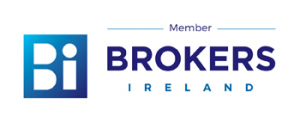Educate your children and protect their future
There seems to be a habit among parents in Ireland not to talk to their children about money. We teach our children about many things to help them in their lives, we teach them new skills and we help them develop good behaviours. But not about money! This is mainly because we don’t want to worry them, or have them talking about it to their friends. But research shows that people learn more valuable lessons about money skills from their parents than any other source.
Here are a few thoughts as to how you can approach the whole subject of money with your children.
Start early
Recent research suggests that adult money habits are set by the age of seven, so you should start teaching children early and tailor the lessons to suit their age, because financial lessons must be age appropriate to have effect. Parents should make money the topic of regular family discussions and also reinforce these discussions around dates when the children are due to receive a cash gift, such as when making their first communion.
Manage pocket money carefully
As your children start to get pocket money, encourage them not to spend it all as they receive it, and instead to save for a bigger treat to be bought every few weeks or months. This can set in place the benefits of delayed but ultimately greater rewards. We all know the benefit, as we get older, of saving for holidays and cars etc. instead of the alternative route of borrowing and paying back far more than the actual cost. Also, children should have to do something for their pocket money, as this will help them place a value on it. Even if it’s younger children picking their clothes up off the floor! They then start to associate money as a reward, rather than a right.
Want versus need
Children often ask for the latest most popular toy, which is often very expensive. Getting them to understand the difference between wanting the toy and needing the toy will help them make sensible spending decisions from a very young age. Parents should reinforce through words and actions that it’s important not to spend more money than you have. One good way is to keep the expensive fun purchases in check by not giving in to every request and maybe explain that the item is not included in the family budget. You should be aware though that by simply saying that you cannot afford the item, you can send out a message that you are not in control of your money and this is a negative message for children.
Setting Goals
One of the best ways to help children learn about money management is to encourage them to open a savings account. Help them to understand why they are saving by sitting down with them and decide on a savings goal. You can set short-term goals to begin with, and then later on a longer-term goal such as saving money for summer holidays.
Lead by example
Parents have a great deal of influence on their children, and it is not just the positive messages that have an effect on children. Children tend to copy what their parents do rather than what they say, so limit the amount of shopping trips as a leisure activity. Otherwise they might start to think that money is an unlimited resource and that spending is simply a fun activity!
Budgeting
This is the first financial challenge that many young adults are faced with when they leave home, so it is important to teach young children about how and why to budget. You could use an occasion such as shopping for Christmas presents to start teaching them about budgeting.
Beware of borrowing
As our children get older and more financially mature it’s no harm to talk to them about debt. While debt features in all our lives, at least in the form of mortgages, young adults need to learn to plan debt carefully and to avoid the pitfalls of expensive debt. Talk to them about avoiding impulse purchases using credit cards particularly if they will not be able to repay the debt without incurring charges.
Get them to plan their financial future
For your adults probably the most important challenge of all will be Financial Planning. This shouldn’t start when people hit their forties and start worrying about retirement. If children are taught financial planning at a young age, for example when they are thinking about all the things they want but can’t afford, it will help them to manage their financial expectations later in life. Choices have to be made, careful decisions need to be taken and a plan needs to be put in place to manage their limited resources to achieve the maximum effect. This will carry through and apply at every stage of their life!
There are lots of lessons we can teach our children, and lessons about money are useful to help guide them through an often complex area of their lives.
Here to help you navigate your way to financial security.
The Milestone Advisory team are qualified financial services consultants. We specialise in helping professionals in the construction sector and related industries. Our team will work with you to review your finances, explaining your options in clear English.
No jargon – just the facts.
For further information please contact Susan O’Mara via email or phone: (01) 406 8020. Milestone Advisory DAC t/a Milestone Advisory is regulated by the Central Bank of Ireland.





